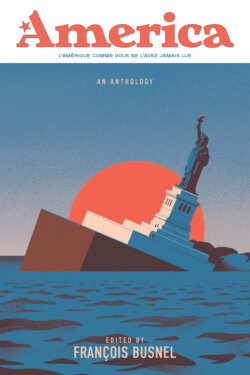Читать книгу America - Группа авторов - Страница 6
На сайте Литреса книга снята с продажи.
ОглавлениеINTRODUCTION
By
François Busnel
Translated by
Kate Deimling
How many times have you heard someone say, “In the Trump era, truth is stranger than fiction”? This is why some friends and I founded a magazine in which specialists in fiction—novelists—can describe the reality of America.
America came about after Donald Trump was elected. The idea was to tell the story of the world’s number one superpower on a quarterly basis, for the length of a presidential term. Trump’s victory didn’t just stun many Americans. It shook the whole world. As a Frenchman, I feel I belong to what is sometimes called, without irony or submissiveness, the fifty-first state. In other words, the rest of the world. Whether we like it or not, we are all deeply affected by what happens in the United States. If we accept the prevailing cynicism and see Donald Trump simply as a clown, we’re just fooling ourselves. The current resident of the White House is much more astute than people think. He shrewdly proves the Mark Twain maxim “All you need in this life is ignorance and confidence; then success is sure.”
Since America is anything but homogeneous, America has sent writers all over the country, to big cities and little towns, to collect impressions and opinions face-to-face in unbiased fashion, so that literature can cast its net to capture the images that are the truest, the strongest, and sometimes the most disturbing.
Novelists’ inspired visions, which are the basis of our approach, seem to be more necessary than ever. We are currently experiencing one of the biggest challenges to democracy: in a puzzling paradox, it seems the more we know about our world—with the Internet, new technologies, and the accessibility of the written word—the less we know what to think about it. There is only one solution: novels. When the authorities preach, novelists take a skeptical stance. When experts try to simplify things, novelists restore complexity. When politicians spin the facts, novelists pull back the curtain on deception. How? By asking questions. By telling stories. How did Trump’s reign happen? How did the populist wave triumph, with its accompanying intolerance, ignorance, racism, and partisanship? How are Americans living today, both those who brought this movement to power and those who are simply enduring it? What does the United States of America look like today, after four years of a reign marked by huge political turmoil, threats of war, a surge in protests fighting for racial justice, and the worst public health crisis the country has faced in the last century? A line from investigative journalist Carole Cadwalladr has inspired my readings and travels for years now: “You may know the facts, but you don’t know the story.” Like many people, I’m a collector of stories.
Novelists don’t affirm anything; they seek. Their job is not to solve problems, but to express them. It’s quite possible that human stupidity comes simply from trying to have an answer for everything. The novel’s wisdom is to have a question for everything. America wants to take up this challenge: to understand rather than to judge.
